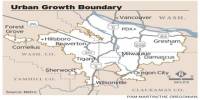Definition of Corruption:
Defining corruption is important in the context of global efforts to reduce its influence in public life. But is not an easy task to define corruption. Webster Dictionary describes corruption as morality, state of being corrupted and according to the dictionary corruption means a state of decomposition, dishonest, rotten, pollute, immoral and bad. A definition has been found in a publication of the World Bank headed “VIETNAM-Combating Corruption” as “Corruption practice refers to the act of offering, giving, receiving or soliciting anything of value with the aim of influencing the action of a public official in the procurement process or the contract execution. The easy and artistic meaning of corruption may be an act s sanctity. In the administrative view, corruption has a specific meaning. If a public servant abuses power or designation or does a wrong or refrains from doing justified act with a view to fulfilling his desires or giving undue privileges to his relatives, friends or any person, such act will be considered as corruption. Professor Robert Cligaurd of South Africa gave the following equation regarding corruption:[2]
Corruption = monopoly + Discretion –Accountability – Salary.
From the above quotation it is said that if monopoly and discretionary power of government is increased and on the other hand if there is no accountability and salary is lower standard, the ultimate effect is the promotion of corruption. But in the opposite manner, if the authority of the first two elements is decreased and the authority of the last two elements is increased, corruption will be alleviated.
Corruption is a social, legal, economic and political concept enmeshed in ambiguity and consequently encouraging controversy. The ambiguity and controversy result from the fact that a number of competing approaches to understanding corruption is available. Naturally, definitions of corruption focus on one of several aspects of the phenomenon; various approaches to c corruption can be placed into five groups. These are public-interest centered, market centered, public-office-entered, public-opinion-entered and legalistic. Proponents of the public interest centered approach believe that corruption is in some way injurious to or destructive of public interest. Market centered enthusiasts suggests that norms governing public office have shifted from a mandatory pricing model to a free market model, thereby considerably changing the nature of corruption . Public centered protagonists stress the fact that misuse by incumbents of public office for private gain is corruption.11 those who believe in public opinion centered definitions of corruption emphasize the perspectives of public opinion about the conduct of politicians, government and probity of public servants. Corruption includes moral perversion; imprisonment of virtue and moral principals ;the luxury and corruption among the upper classes; moral degeneracy followed intellectual degeneration; its brothers, its opium parlors, its depravity ;Rome had fallen into moral putrefaction .Corruption includes destroying someone’s honesty and loyalty ;undermining moral integrity;‘ Corruption is a minor”; “the big city’s subversion of rural innocence . Corruption includes inducement by improper means to violates duty. “he was held on charge of corruption and racketeering. Corruption is defined, for instants, as a preservation of power.[3]
Types of Corruption:
There are three broad classifications of corruption, which are however not mutually exclusive:
a) Petty and Grand corruption:
Petty Corruption: Practiced on a smaller scale. Defined as the use of public office for private benefit in the course of delivering a pubic service. Usually involves relatively small amounts of money, including bribery (grease money or speed payments) The public servant abuses his/her position by accepting a benefit for what is a routine transaction or approval. The direct victim of this abuse of power is the citizen.
Grand Corruption: The most dangerous and covert type of corruption. Instances where policy making, its design and implementation are compromised by corrupt practices. Found where public officers in high positions (such as councilors), in the process of making decisions of significant economic value, routinely demand bribes or kickbacks for ensuring that tenders or contracts are awarded to specific contractors.
b) Political and Business corruption:
Political Corruption: Occurs predominantly in developing and less developed countries. Usually associated with the electoral process. Includes:
voting irregularities
nepotism and cronyism
rule of a few
false political promises
paying journalists for favourable coverage of candidates and parties
influencing voters by the distribution of money, food and/or drink
holding on to power against the will of the people.
Business Corruption: Often not regarded as a crime, rather as a means to accelerate business processes. Proponents claim that the end result is not affected; the mechanisms used to achieve the result are simply accelerated; In essence, bureaucracy is bypassed and time is utilized. Includes bribery, insider trading, money laundering, embezzlement, tax evasion and accounting irregularities.[9]
c) Chaotic and Organized corruption:
Chaotic Corruption: A disorganized system where there is no clarity regarding whom to bribe and how much payment should be offered. There is:
no guarantee that further bribes will not have to be paid to other officials;
no reasonable assurance that the favour will be delivered;
no coordination between the recipients of benefits, with the result
that the price of corruption is often inflated
All these distinctions have no value: no form of corruption is better or worse than another.
Organized Corruption: A well-organized system of corruption in which there is a clear idea:
of whom to bribe;
how much should be offered
and are confident that they will receive the favour in return.
Organized corruption is often perpetrated by crime gangs and syndicates and includes white-collar crime and identity theft[10]
















